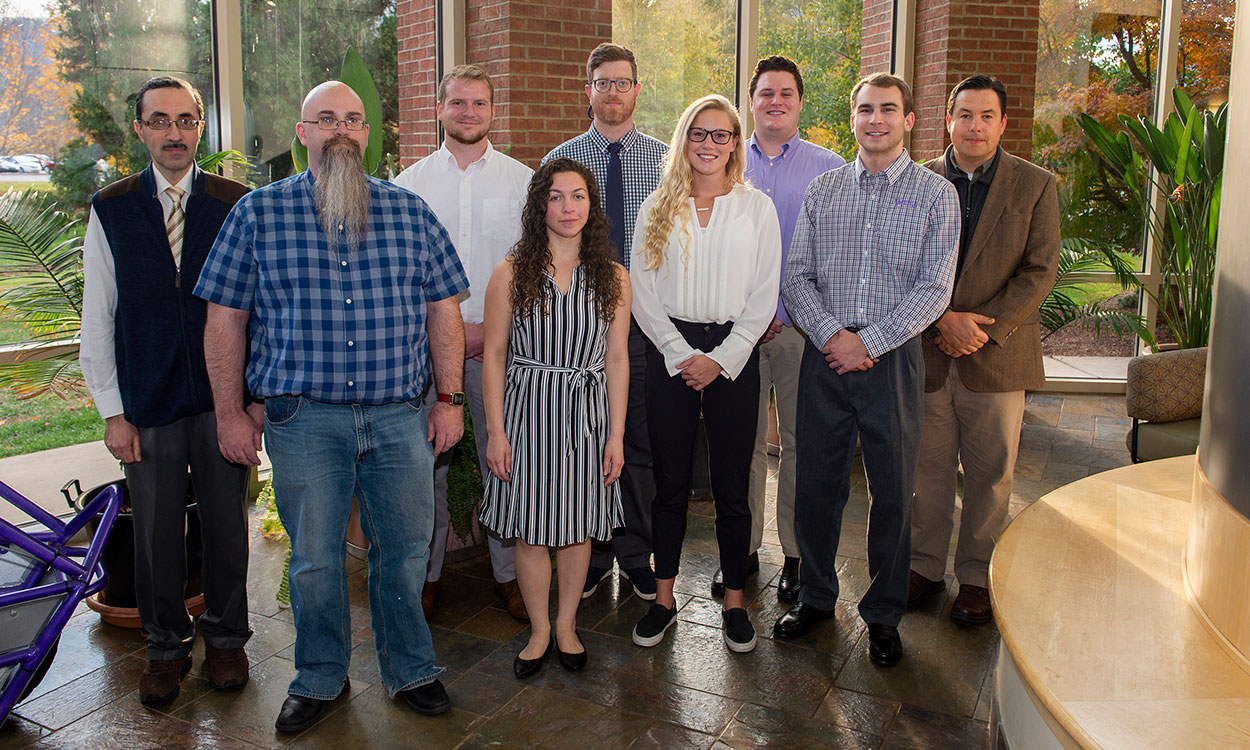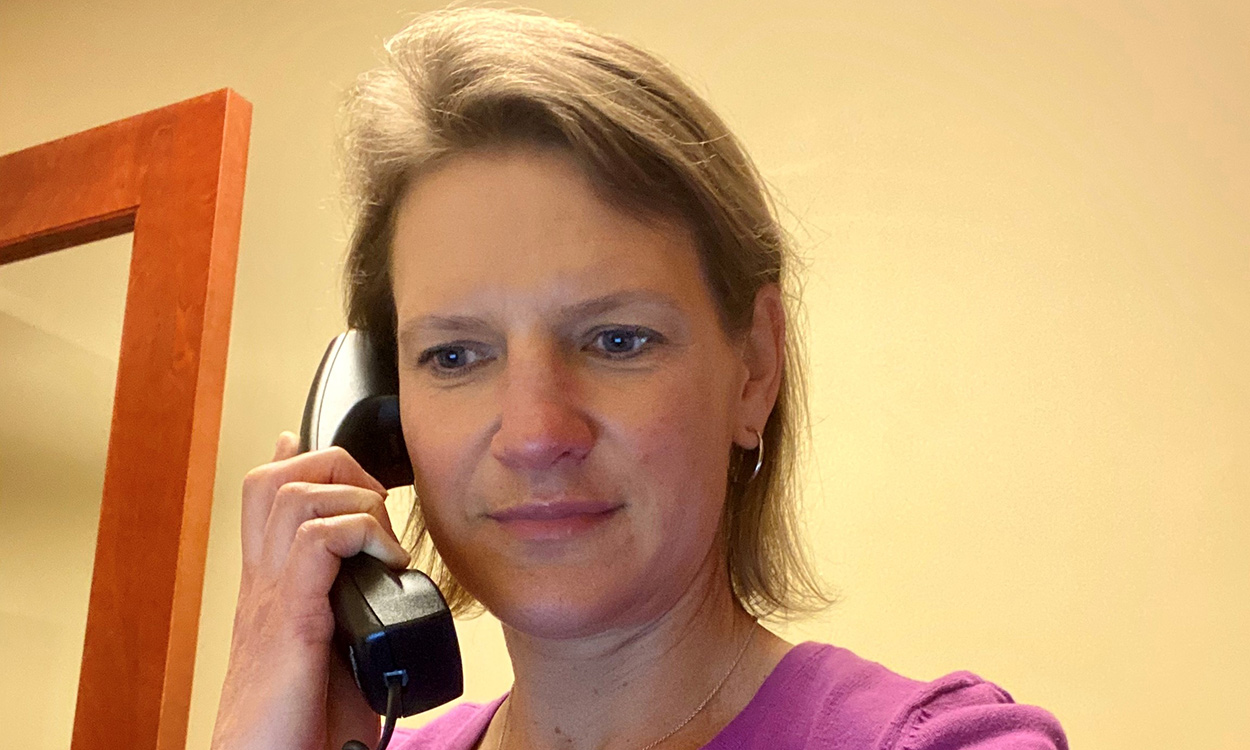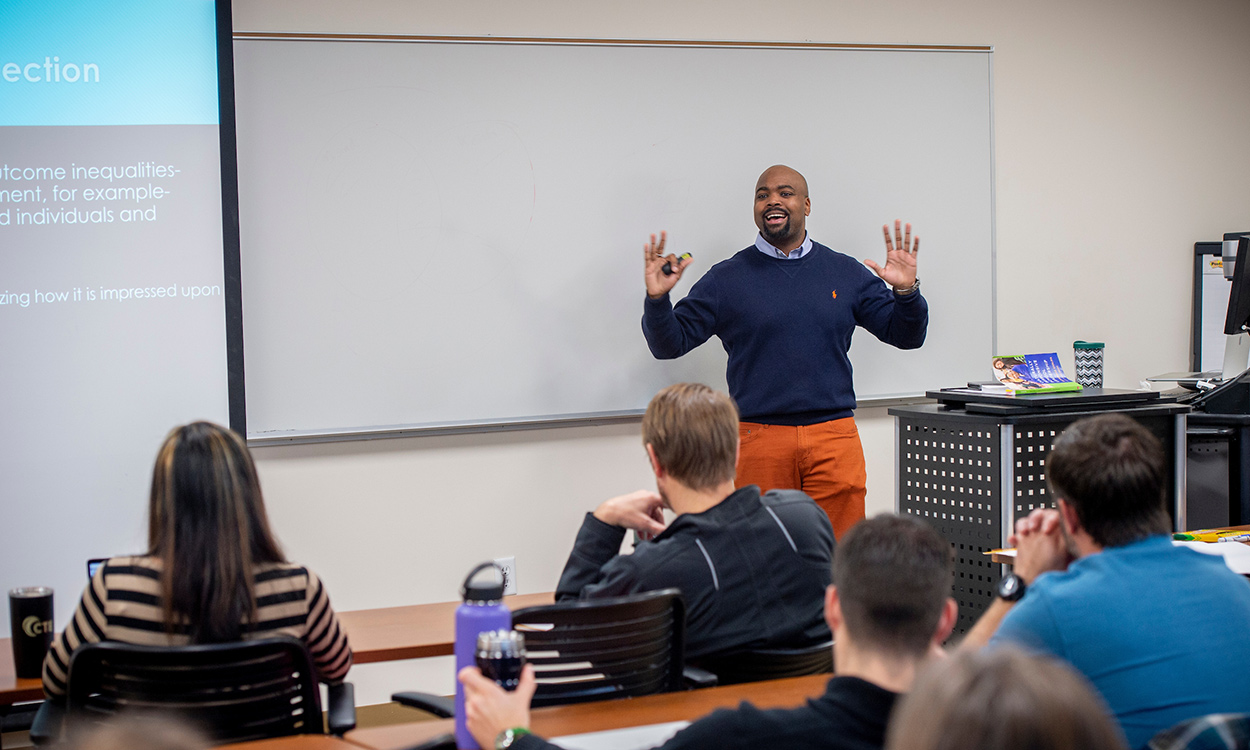Students take advantage of scholarships funded through Nuclear Regulatory Commission

The seven WCU students who began participating in the Scholarship Program for Nuclear Workforce Development during the 2017-18 academic year get together with School of Engineering and Technology faculty members Bora Karayaka (far left) and Chip Ferguson (far right.) The students are (from left) Colin Reilly, Jacob Knapp, Paola Cruz, Kyle Monaghan, Mary Emma Haywood, William Benson and Tanner Hollis.
Three Western Carolina University students who were among the first on campus to sign up for a scholarship program funded through the Nuclear Regulatory Commission are now looking toward their May graduations and have fielded job offers, and a fourth student in that group who will be receiving a degree this spring is pondering an internship that may very well turn into a permanent work position.
The Scholarship Program for Nuclear Workforce Development provides financial assistance to WCU engineering majors who have a concentration in electrical power or mechanical engineering and to electrical engineering majors, said Bora Karayaka, an associate professor in WCU’s School of Engineering and Technology who oversees the program on campus. Participating students receive $5,000 per semester for their junior and senior years, provided academic milestones are achieved. Recipients of the scholarship also agree to work in nuclear-related employment for six months after graduation for every year they receive the award.
The program began at WCU in 2016 when the NRC, the federal agency that regulates commercial nuclear power plants and other uses of nuclear materials, approved the university to receive a two-year grant of just under $200,000 to fund the scholarships, Karayaka said. After that funding was secured, recruiting efforts began to identify WCU engineering students interested in participating in the program, and three students started it in the fall of 2017. Later, four more students signed up to begin the program in the spring 2018 semester, he said.
With the initial NRC grant set to end this coming June, WCU was approved last July to receive another NRC two-year grant of $200,000 to continue the program. Five students began participating in the current spring semester, and two more will be in the program starting next fall.
From a curriculum standpoint, the program requires students to complete five courses, with three being taught in the classroom by WCU engineering faculty, and the scholarship recipients taking two online courses through the Nuclear Power Institute at Texas A&M University. Karayaka teaches courses in “Electric Power Systems” and “Electric Machines and Drives,” with other WCU faculty members leading students through a course in “Thermodynamics.” The online courses address the basics of nuclear plant operations with topics such as “Nuclear Power Plant Fundamentals” and “Nuclear Power Plant Systems (Pressurized Water Reactors).”
Despite the emphasis on the nuclear power industry, the “workforce development” aspect of the program relates to all types of nuclear-related fields, ranging from nuclear medicine to nuclear submarine work for the U.S. Navy, Karayaka said. The three students who recently have been contemplating job offers as they get set to graduate got those offers from companies outside the nuclear power industry, but all three qualified as nuclear-related employment with the NRC, he said.
One of those students, Jacob Knapp of the Henderson County community of Horse Shoe, transferred into WCU’s engineering program from Clemson University. Knapp said his job offer is from a company that repairs and maintains aircraft for the U.S. Navy and U.S. Marine Corps.
Knapp said he was motivated to participate in the NRC scholarship program because of the additional educational opportunities it provides, the financial support that is helping him earn two WCU degrees, and the opportunity to learn more about electrical power engineering. “I would definitely recommend this program to other engineering students, especially if they are ‘mechanical’ majors who are somewhat interested in ‘electrical,’ or vice versa,” he said. “The exposure to nuclear engineering through Texas A&M courses was a great experience.”
Another student with a pre-graduation job offer is Tanner Hollis, who came to WCU from Charlotte. Hollis said he was attracted to the program initially because of the scholarship, but later “it was clear that this path was a sure-fire way to secure a job after graduation.”
Like Knapp, Hollis will be graduating with two degrees. He said his job offer came from a company that does engineering work for many of the top power companies on the U.S. grid, and the business is based in Maine but has offices in Asheville. The company “provides everything from design and documentation to testing and commissioning on the U.S. grid,” he said. “Many of the generation – as in electricity generation – projects are composed of nuclear generation and transmission, although most likely I will not be directly involved with those projects,” Hollis said.
Both Knapp and Hollis will be receiving degrees in electrical engineering and in engineering through the electrical power concentration.
For more information about the Scholarship Program for Nuclear Workforce Development, contact Karayaka at 828-227-2472 or hbkarayaka@wcu.edu.

